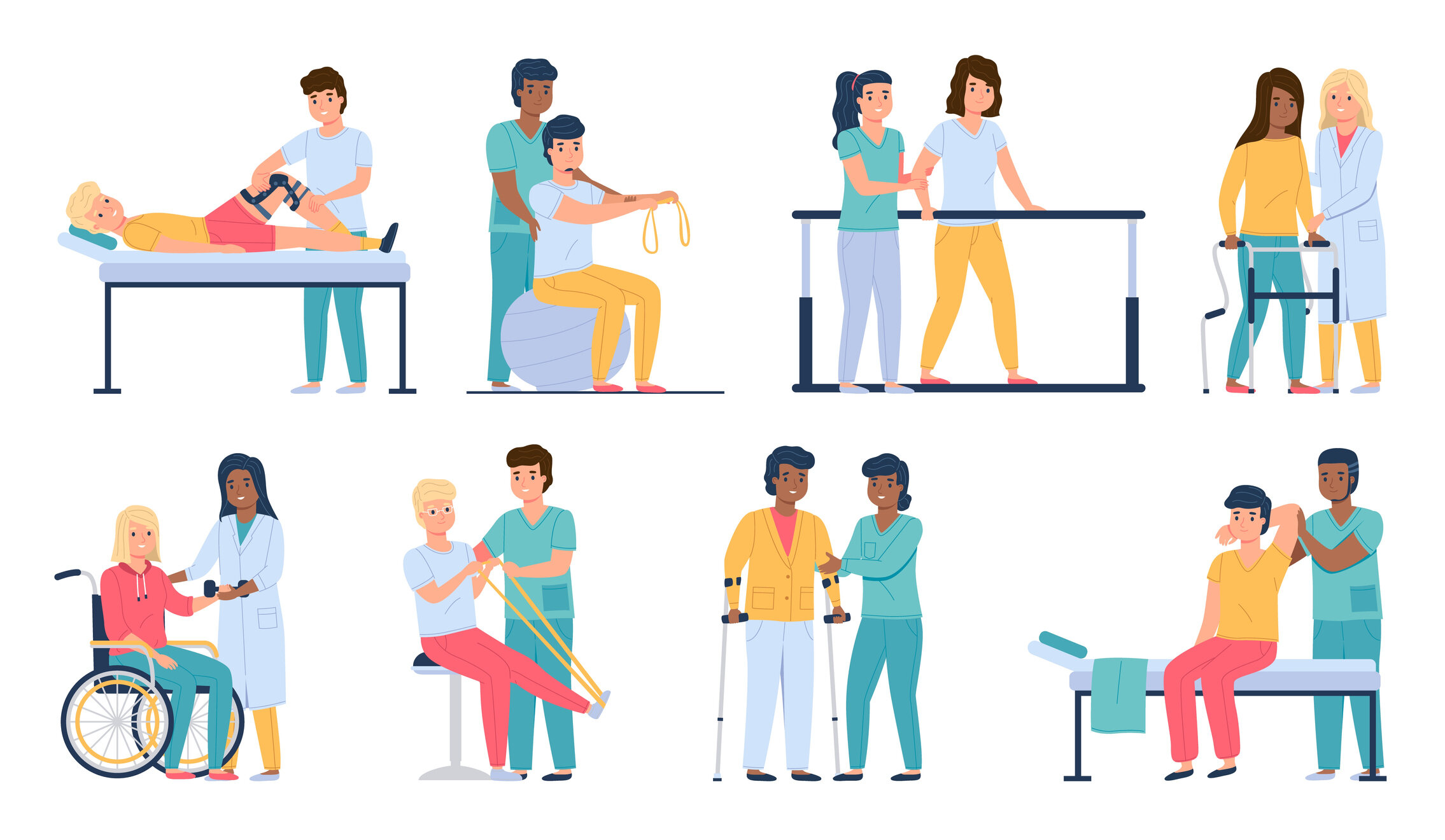
Rehabilitation is a crucial aspect of healthcare that aims to restore, improve, and maintain physical strength and mobility. It encompasses a wide range of medical and therapeutic interventions designed to help individuals recover from injuries, surgeries, or illnesses. As we delve into 10 rehabilitation facts, we will explore the diverse facets of rehabilitation, including its importance in enhancing quality of life, the role of various healthcare professionals in the rehabilitation process, and the latest advancements in rehabilitation techniques. Understanding these facts will not only shed light on the significance of rehabilitation in healthcare but also empower individuals to make informed decisions about their own or their loved ones‘ rehabilitation journeys.
Key Takeaways:
- Rehabilitation is personalized to help people recover from injuries and illnesses, promoting independence and preventing complications, and can be done in various settings to empower individuals to pursue their goals.
- Rehabilitation involves a multidisciplinary approach, requires commitment and consistency, and is not limited to physical therapy, addressing mental and emotional aspects to aid in pain management.
Rehabilitation is an essential part of the recovery process.
Rehabilitation plays a crucial role in helping individuals recover from various injuries, illnesses, and medical procedures. It encompasses a wide range of medical and therapeutic interventions aimed at restoring function and improving the overall quality of life for patients.
Rehabilitation programs are tailored to individual needs.
Each person’s condition and needs are unique, and rehabilitation programs are customized to address these specific requirements. Whether it’s physical therapy, occupational therapy, speech therapy, or a combination of these, the rehabilitation process is personalized to optimize the individual’s recovery.
Rehabilitation promotes independence.
One of the primary goals of rehabilitation is to enhance independence for individuals who have experienced illness or injury. Through targeted therapies and support, rehabilitation helps patients regain the ability to perform daily activities and tasks, fostering a sense of autonomy and self-sufficiency.
Rehabilitation is not limited to physical therapy.
While physical therapy is a significant component of rehabilitation, it also encompasses mental and emotional aspects. Psychological counseling, cognitive therapy, and emotional support are integral parts of the rehabilitation process, addressing the holistic needs of the individual.
Rehabilitation aids in pain management.
Effective rehabilitation programs incorporate pain management strategies to alleviate discomfort and improve the individual’s overall well-being. Through targeted exercises, therapies, and medical interventions, rehabilitation contributes to minimizing pain and enhancing comfort.
Rehabilitation can prevent complications.
By addressing the physical, mental, and emotional aspects of recovery, rehabilitation plays a vital role in preventing potential complications that may arise from prolonged immobility or reduced function. It focuses on proactive measures to minimize risks and enhance recovery outcomes.
Rehabilitation can be performed in various settings.
Rehabilitation programs can be conducted in diverse settings, including hospitals, outpatient clinics, rehabilitation centers, and even in the comfort of the individual’s home. The flexibility in delivery ensures that individuals can receive the necessary care based on their specific circumstances.
Rehabilitation involves a multidisciplinary approach.
Collaboration among healthcare professionals, including physicians, therapists, nurses, and other specialists, is integral to the rehabilitation process. This multidisciplinary approach ensures that all aspects of the individual’s recovery are comprehensively addressed.
Rehabilitation requires commitment and consistency.
Successful rehabilitation outcomes are often attributed to the individual’s dedication to the prescribed therapies and exercises. Consistent participation and adherence to the rehabilitation plan are essential for achieving optimal results.
Rehabilitation empowers individuals to pursue their goals.
Ultimately, rehabilitation empowers individuals to pursue their aspirations and engage in activities that are meaningful to them. By restoring function, enhancing mobility, and addressing emotional well-being, rehabilitation enables individuals to strive towards their desired quality of life.
Conclusion
Rehabilitation is a vital aspect of healthcare that aims to restore individuals to their optimal physical, mental, and emotional well-being. By focusing on personalized treatment plans and holistic care, rehabilitation professionals can help patients regain independence and improve their overall quality of life. Understanding the importance of rehabilitation and its impact on recovery is crucial for both patients and their loved ones. With ongoing advancements in medical technology and therapeutic approaches, the field of rehabilitation continues to evolve, offering hope and support to countless individuals facing various health challenges.
FAQs
What is the primary goal of rehabilitation?
The primary goal of rehabilitation is to help individuals recover from injury, illness, or surgery, and regain their highest level of functioning and independence.
What types of professionals are involved in rehabilitation?
Rehabilitation may involve a multidisciplinary team including physical therapists, occupational therapists, speech therapists, psychologists, social workers, and other healthcare professionals.
How long does rehabilitation typically last?
The duration of rehabilitation varies based on individual needs and the nature of the condition. Some may require short-term rehabilitation, while others may benefit from long-term or ongoing support.
What conditions can benefit from rehabilitation?
Rehabilitation can benefit a wide range of conditions including musculoskeletal injuries, neurological disorders, cardiac conditions, pulmonary diseases, and mental health challenges.
What role does exercise play in rehabilitation?
Exercise is a fundamental component of rehabilitation, promoting strength, flexibility, cardiovascular health, and overall well-being. It can aid in restoring function and preventing future complications.
Rehabilitation is a multifaceted journey that empowers individuals to reclaim their lives. If you found these rehabilitation facts intriguing, consider exploring the world of wildlife rehabilitation, where dedicated professionals help injured animals return to their natural habitats. For a glimpse into the life of a remarkable woman who has made it her mission to rescue and rehabilitate pit bulls, check out our article on Tia Maria Torres. And if you're curious about the intersection of psychology and criminal justice, our piece on forensic psychology facts offers captivating insights into this fascinating field.
Was this page helpful?
Our commitment to delivering trustworthy and engaging content is at the heart of what we do. Each fact on our site is contributed by real users like you, bringing a wealth of diverse insights and information. To ensure the highest standards of accuracy and reliability, our dedicated editors meticulously review each submission. This process guarantees that the facts we share are not only fascinating but also credible. Trust in our commitment to quality and authenticity as you explore and learn with us.


